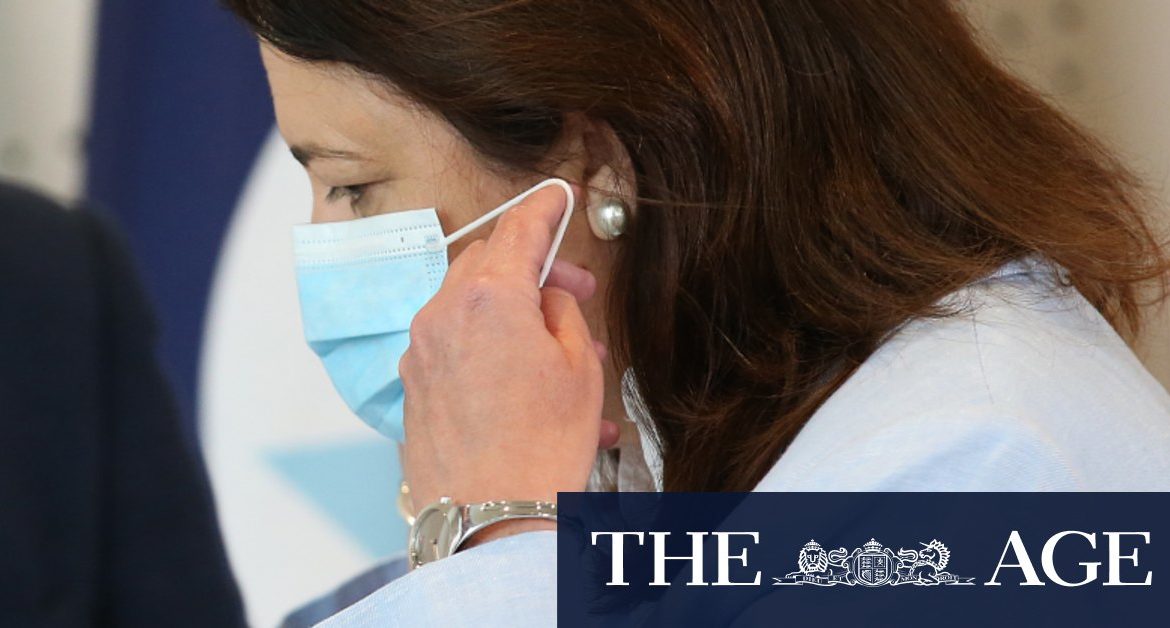Greater Brisbane will remain “on heightened alert” until January 22, which will mark the end of the virus’s 14-day incubation period.
During the next 10 days, face masks will remain mandatory at indoor public spaces, capacity limits will be reduced and fewer people can gather inside homes.
Loading
Chief Health Officer Jeannette Young said the virus variant, known as B.1.1.7 or 501Y.V1, would need to be detected in people who had been out in the community, rather than isolation, for the rules to continue past January 22.
“We are really at the start of understanding this new variant, that is why we have had to be so cautious,” she said.
“I am not sure we will have to be as cautious if we have a case in the future, but while we just don’t know a lot about it, we have to be very, very cautious.”
Dr Young said one new case of the UK strain could trigger another lockdown but it “depends where it is found” and stressed a positive case in quarantine would not prompt another stay-at-home order.
Brisbane emerged from a three-day lockdown on Monday night after authorities found no evidence that the mutant strain had spread widely in Queensland.
Residents were ordered to stay home after a hotel quarantine cleaner, infected with the new strain, tested positive and was mingling in the community while unknowingly infectious.
Health authorities tracked down 370 people who came into contact with the cleaner and 172 of those have returned a negative test result. There were still 198 tests outstanding.
The woman’s partner tested positive for the virus on Monday, but has been in quarantine since January 7. Health authorities were still determining the man’s potential infectious period.
Two investigations, one lead by health authorities and the other by police, are under way to determine how the cleaner became infected.
If there are no further cases of community transmission between now and January 22, restrictions will revert back to the way they were at Christmas time, Health Minister Yvette D’Ath said.
“If we get this right, if we do everything that we need to do then come 22 January we can move back to the way we have been operating since December 1.”
Dr Young welcomed the national cabinet’s decision to reduce overseas arrivals which was increasing the risk of a COVID-19 outbreak in Queensland.
“That will help us enormously because it was a strain on our system to take those up to 1400 people each week, that is now being reduced to 500,” she said. “I think that will help us to manage the risk.”
Both the ACT and Northern Territory revoked Brisbane’s hotspot status on Monday.
People heading from Brisbane to Tasmania still need to quarantine for 14 days, but those who arrived before January 8 no longer need to isolate.
Victoria’s border remained closed to Greater Brisbane and Western Australia has locked out all of Queensland.
South Australia is yet to reveal whether it will continue its 14-day quarantine requirement for Brisbane arrivals and there are no restrictions for Queenslanders travelling to New South Wales.
NSW was the only state in the country to have people test positive for the virus outside of quarantine on Monday.
Three new locally acquired cases were confirmed, but have been linked back to a cluster in western Sydney.
Lydia Lynch is Queensland political reporter for the Brisbane Times
Most Viewed in National
Loading







